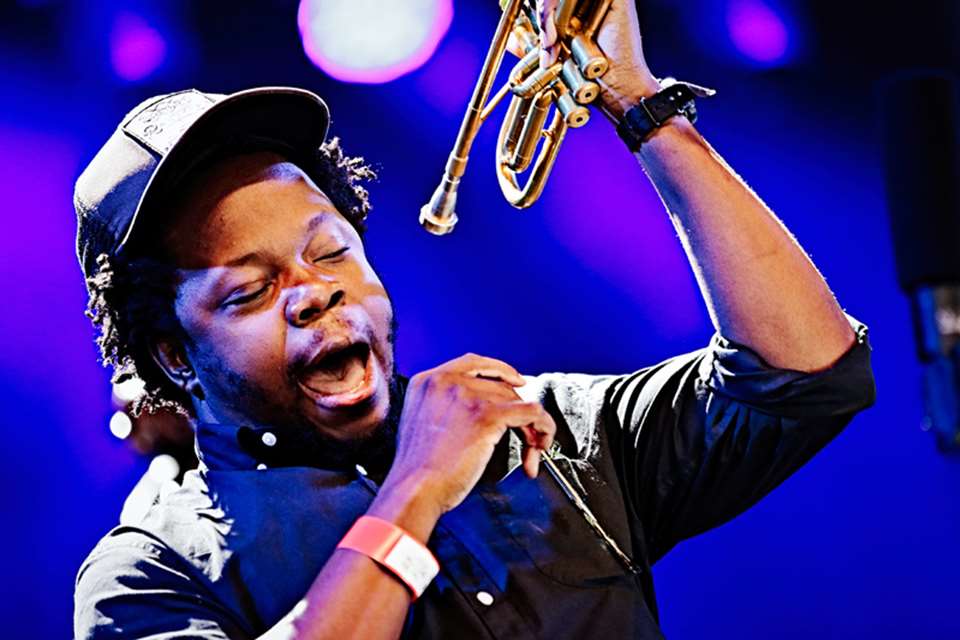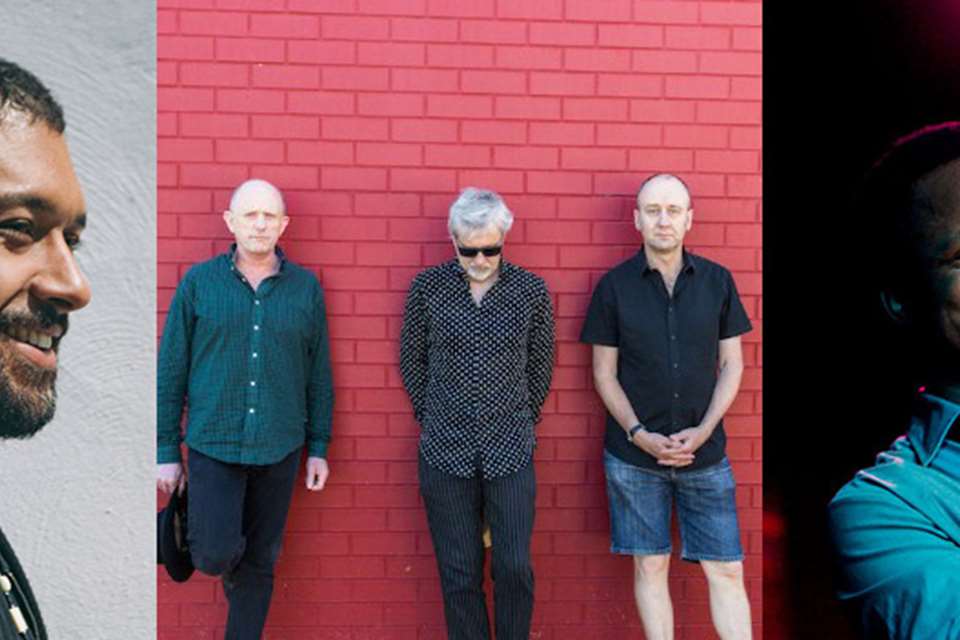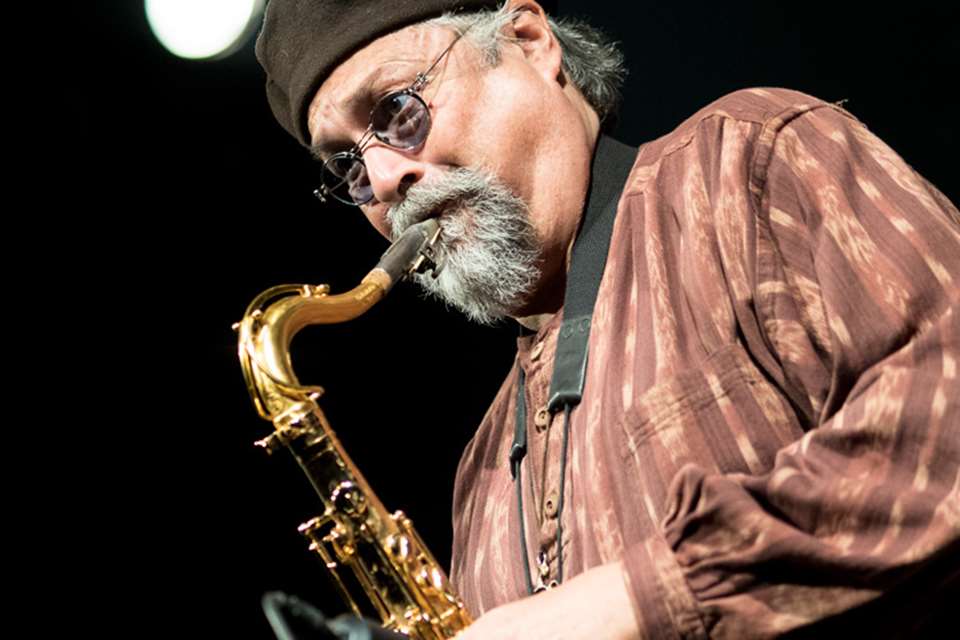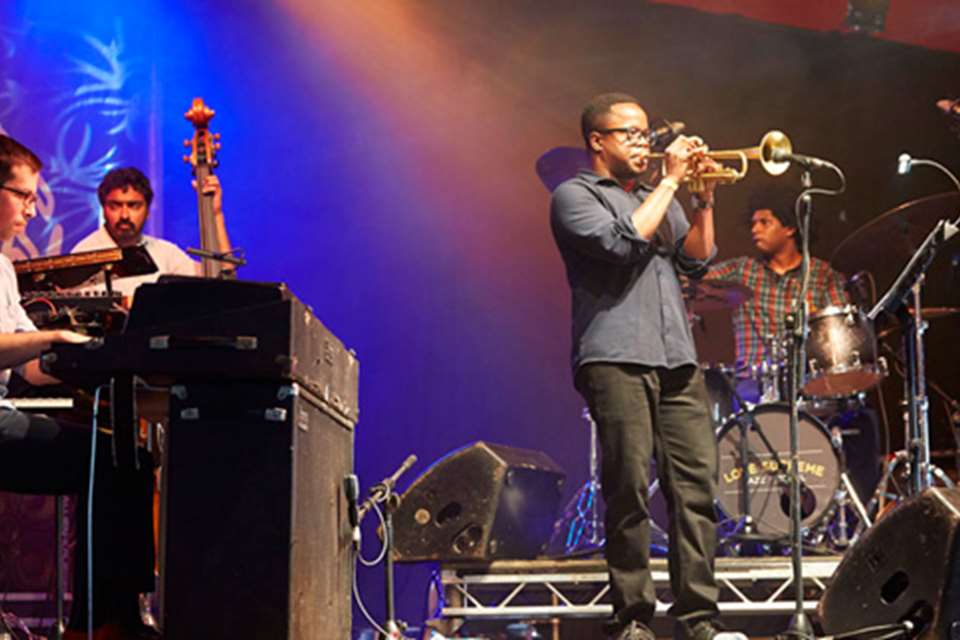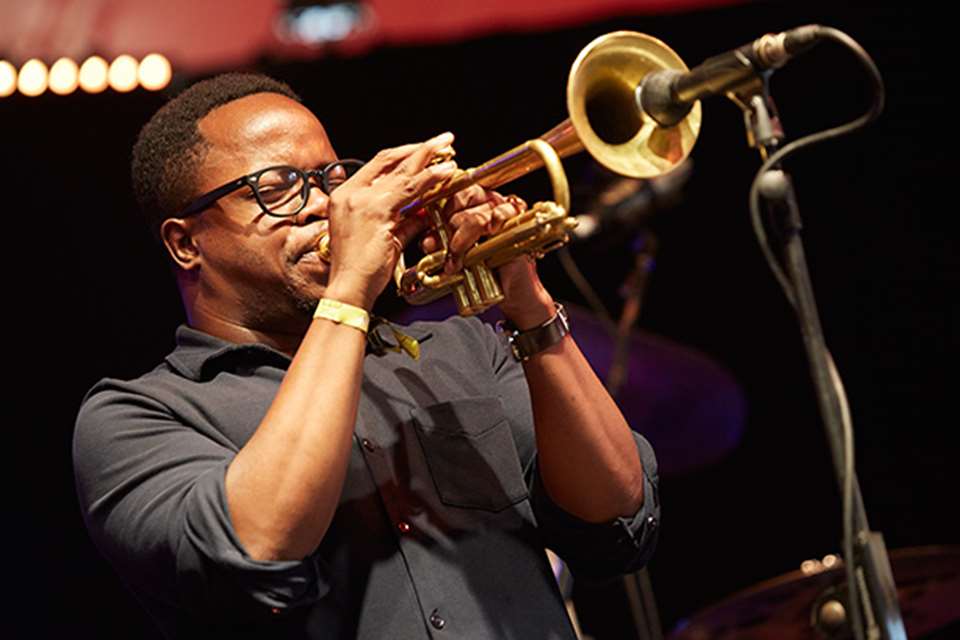Ambrose Akinmusire: “I can take solos that are clean and pristine but what happens after that?”
Friday, July 31, 2020
Coming to prominence while a just teenager, and still only in his 30s, American jazz trumpeter Ambrose Akinmusire has already won a lifetime’s worth of awards and accolades. With the release of a superb new Blue Note album On The Tender Spot Of Every Calloused Moment – a powerful expression of the contemporary black experience – his profile is surely set to soar still higher. Kevin Le Gendre talks to this most literary of musicians about his love of language and desire to pause and reflect in the heat of the moment
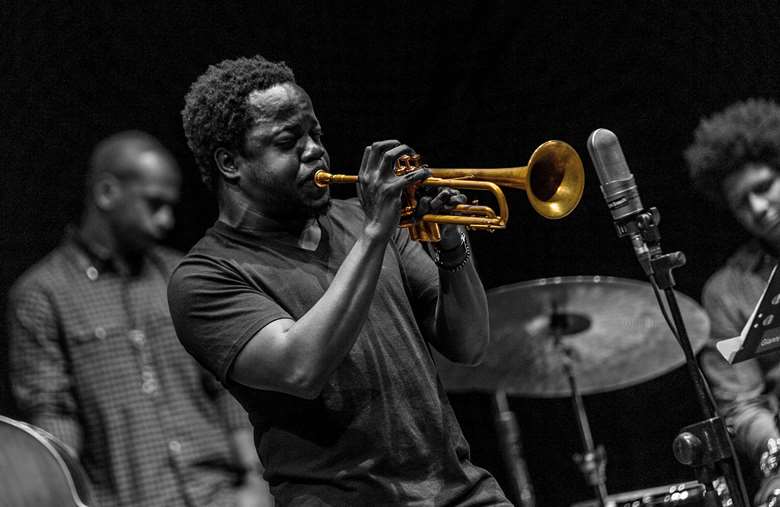

Register now to continue reading

Thank you for visiting Jazzwise.co.uk. Sign up for a free account today to enjoy the following benefits:
- Free access to 3 subscriber-only articles per month
- Unlimited access to our news, live reviews and artist pages
- Free email newsletter

